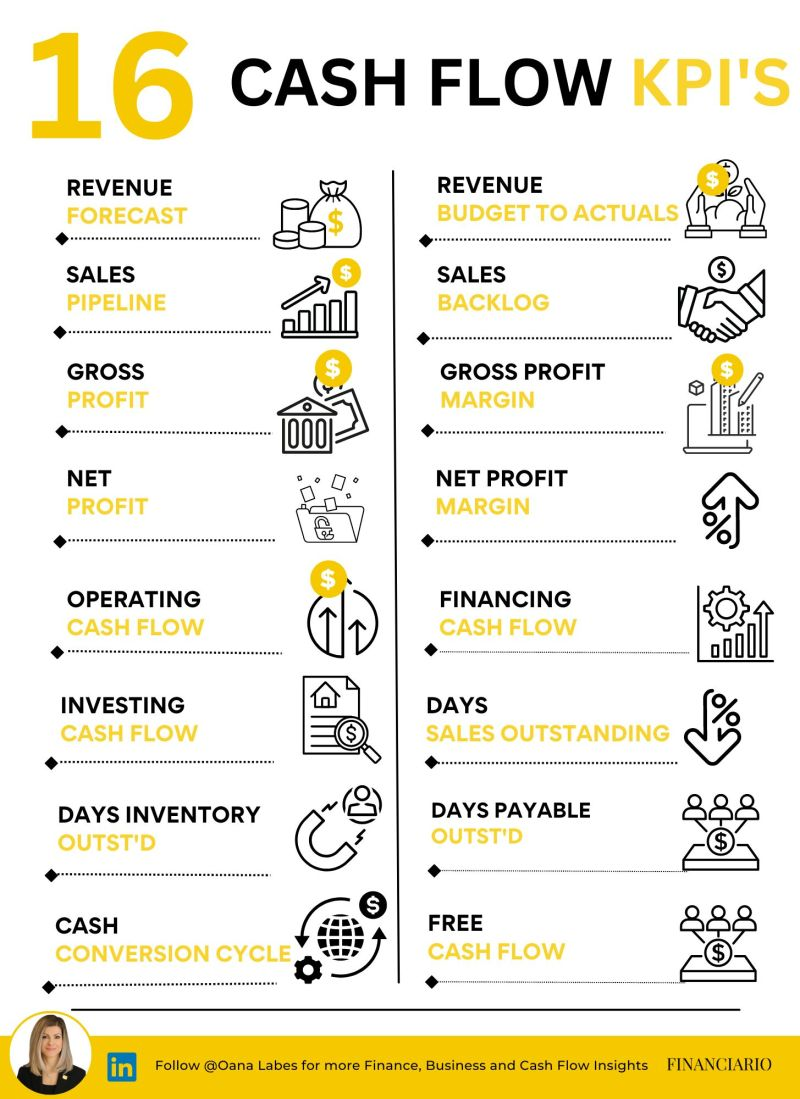16 cashflow KPI to know

Sales Revenue Forecast
The revenue you expect to generate y/y from normal business operations (e.g. from sales of products and services)
Sales Revenue Budget to Actuals
A comparison of the revenues you budgeted for the period against those you actually achieved, typically broken down by product or service line, and including variance analysis
Sales Pipeline
A list of your current sales opportunities in the process of being closed, together with their individual sales values and their probability of closing during the period.
Sales backlog
A list of your signed sales deals currently in process of execution (i.e. future revenues)
Gross profit
The amount of revenue remaining after accounting for your cost of goods sold or cost of sales (COGS/COS).
Gross profit margin
The percentage of your revenue remaining after accounting for the cost of goods sold or cost of sales.
Net profit
The amount of revenue remaining after accounting for your cost of goods sold or cost of sales (COGS/COS) as well as your operating expenses (OPEX).
Net profit margin
The percentage of your revenue remaining after accounting for the cost of goods sold or cost of sales as well as your operating expense.
Operating Cash Flow (OCF)
The amount of cash generated by your ongoing business operations.
Financing Cash Flow
The amount of cash generated by your financing activities (i.e. borrowing and repaying debt, issuing and repurchasing equity, paying dividends)
Investing Cash Flow
The amount of cash generated by your investing activities (i.e. PPE, investments in other companies, investments in marketable securities)
Days Sales Outstanding (DSO)
The average number of days you take to collect on outstanding customer (AR) balances
Days Inventory Outstanding (DIO)
Average number of days you take to sell your inventory
Days Payable Outstanding (DPO)
Average number of days you take to settle outstanding supplier (AP) invoices
Cash Conversion Cycle (CCC)
The average number of days it takes you to convert your inventory investment into sales, your sales into receivables and your receivables into cash.
Free Cash Flow (FCF)
Net Income + Interest + Taxes + Depreciation/Amortization +/- Non-Cash Items +/- Changes in Working Capital +/- Changes in Fixed Assets
Notes mentioning this note
There are no notes linking to this note.